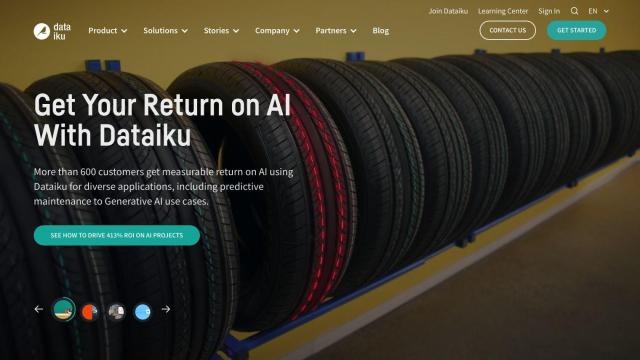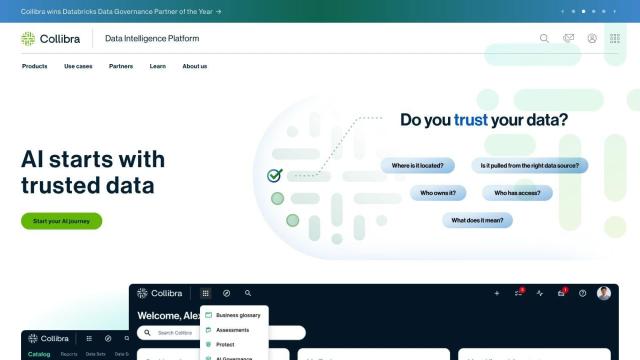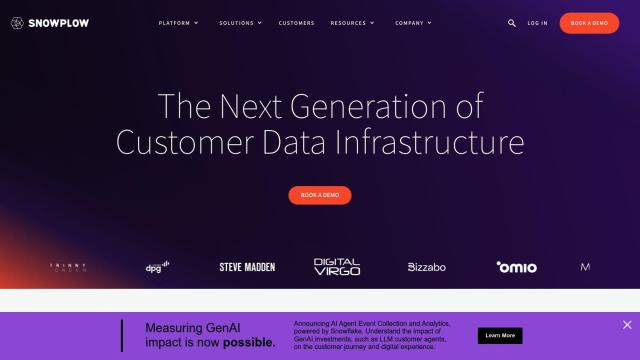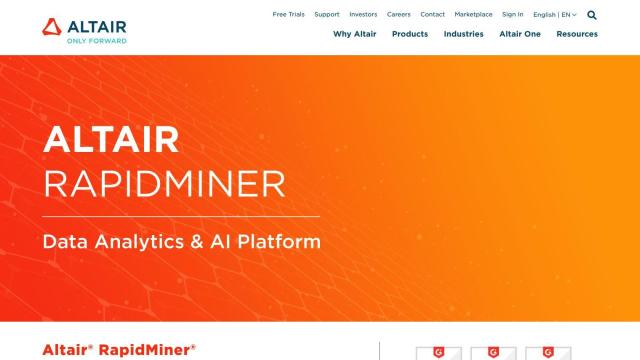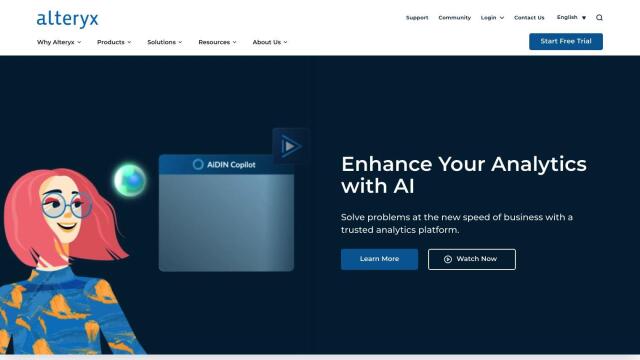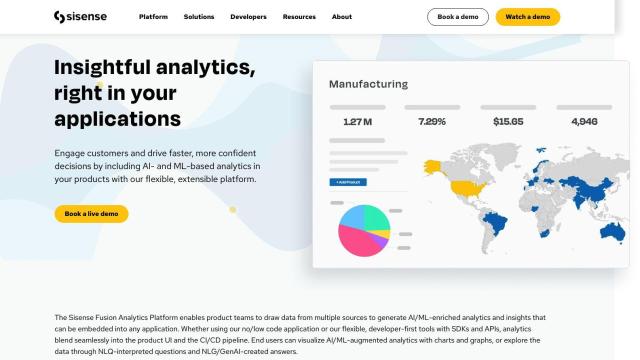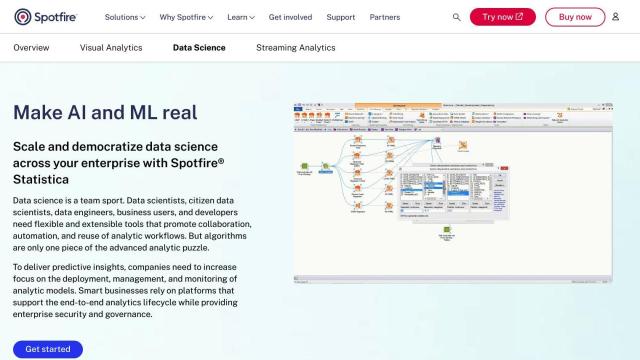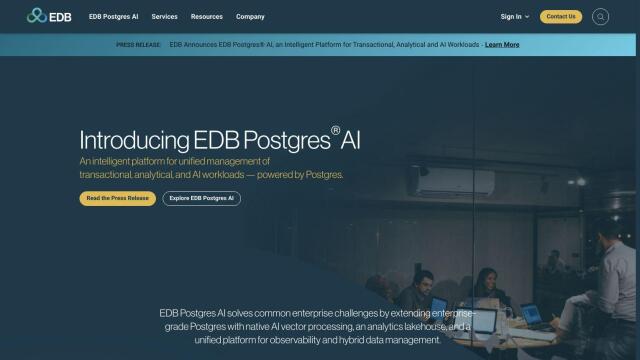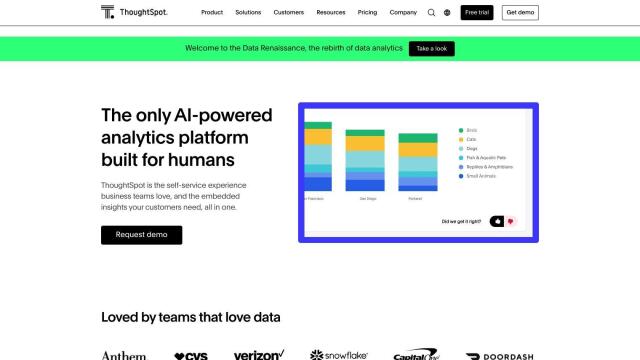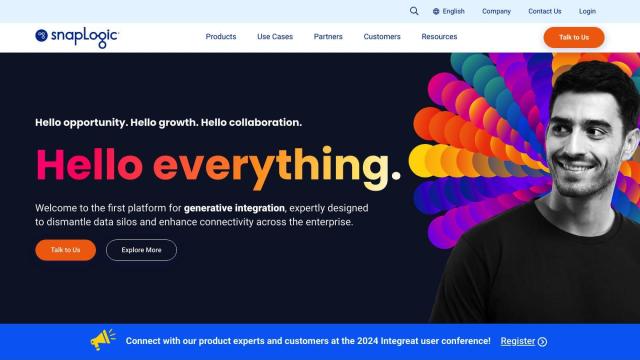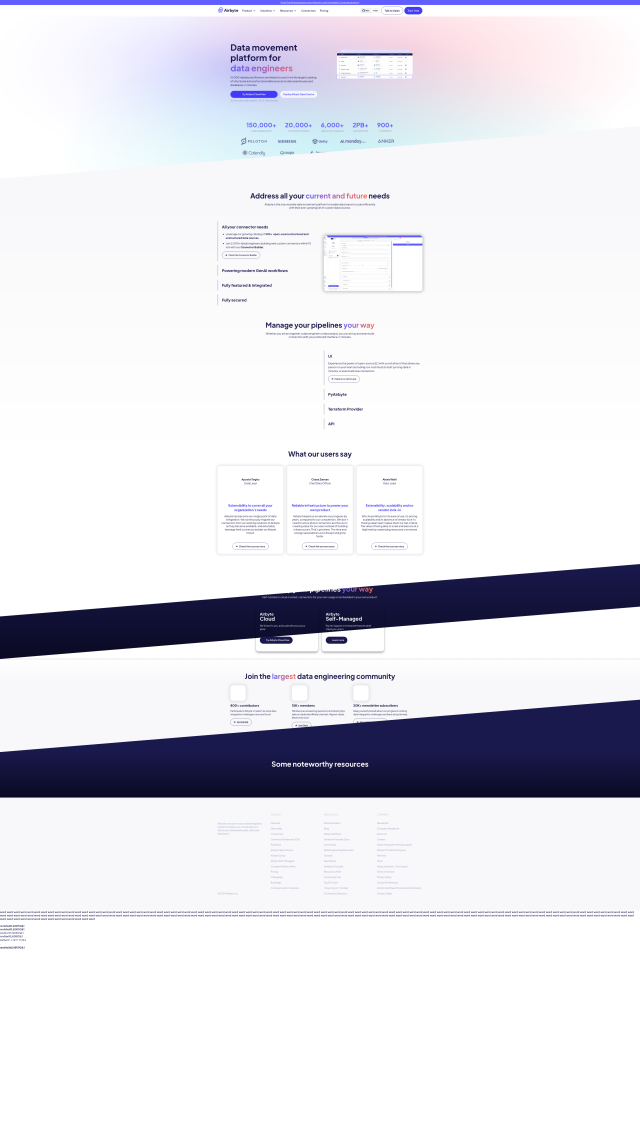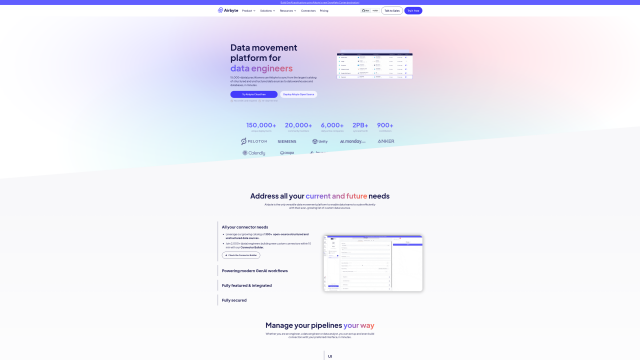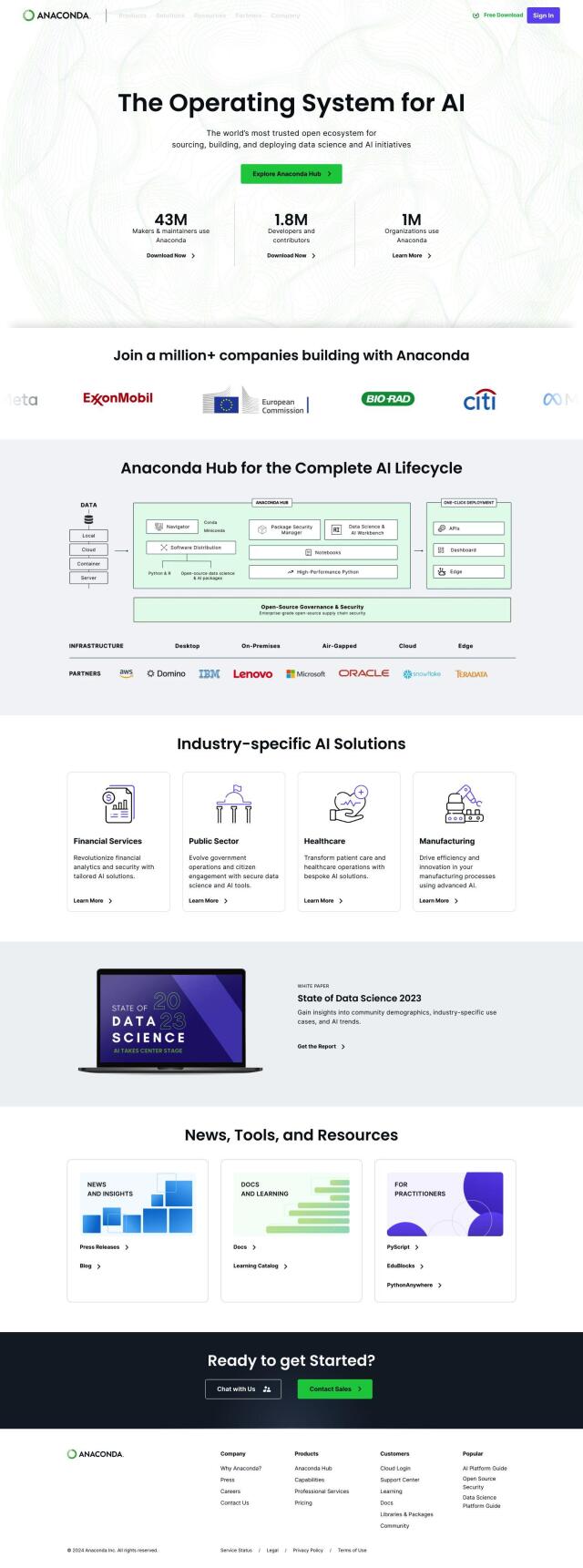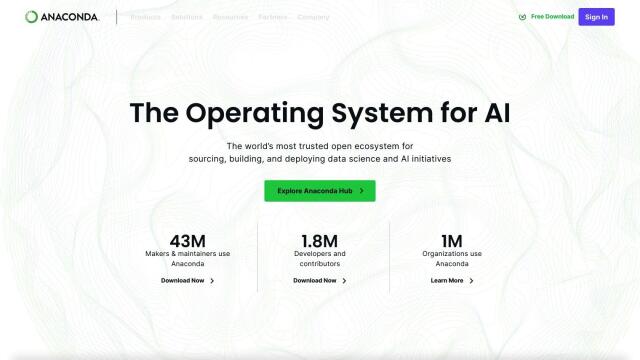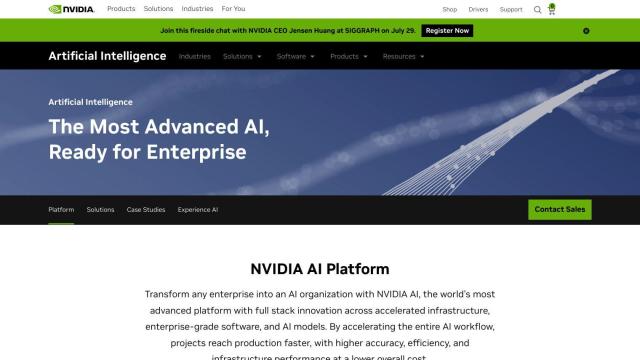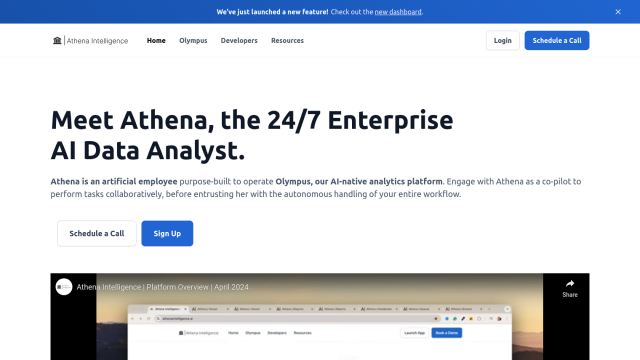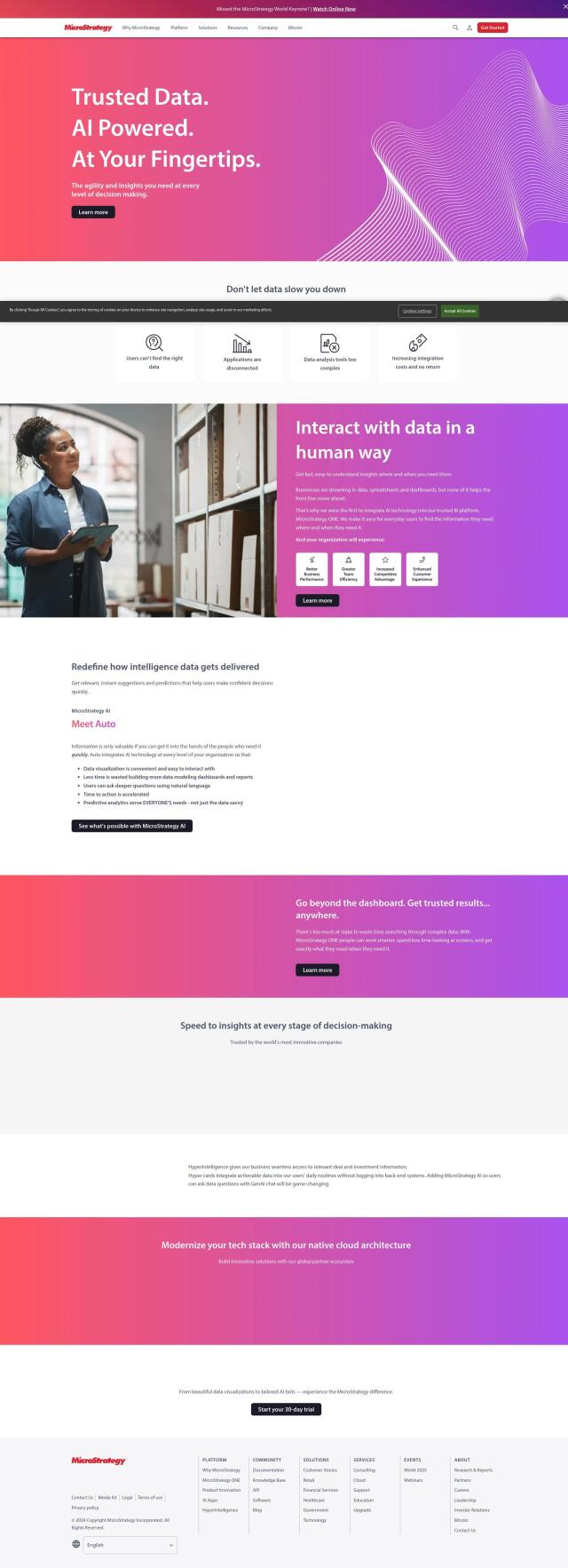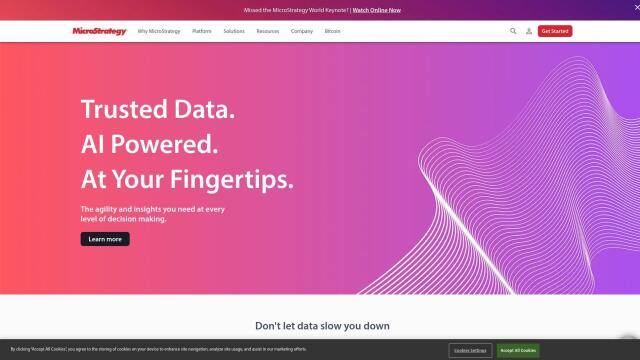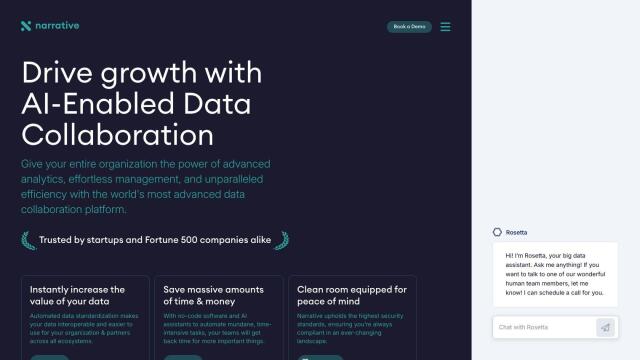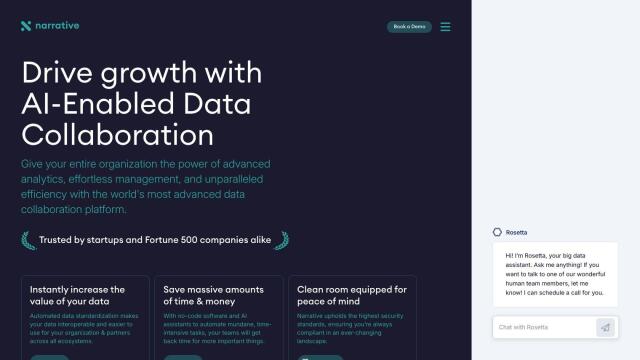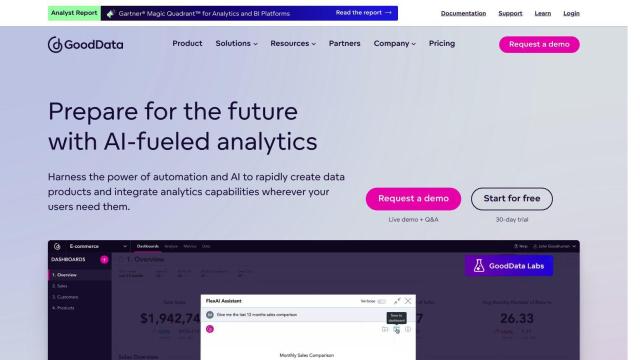Question: Can you find a platform that helps break down data silos and supports advanced analytics and AI applications?

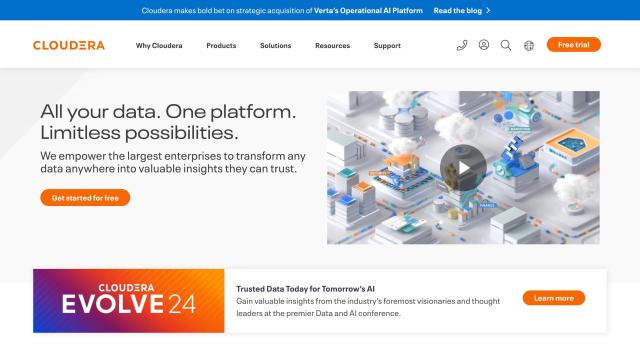
Cloudera
Cloudera has a hybrid data platform that securely ingests, processes and analyzes data in the cloud and on-premises. The platform consolidates data from multiple sources into a unified trusted system for insights and AI model training. It comes with a wide range of data services for real-time insights, automated data pipelines and large-scale AI applications, and is geared for industries like financial services, manufacturing and health care.

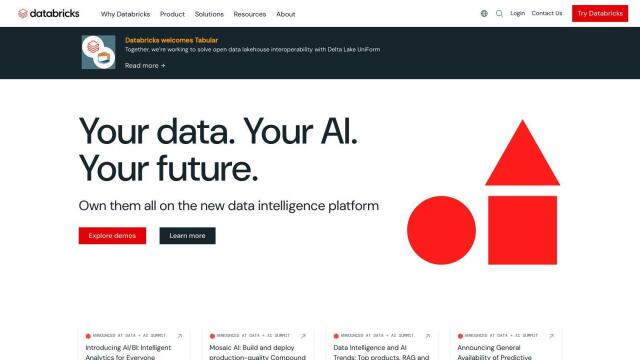
Databricks
Another powerful choice is Databricks, a data intelligence platform that marries generative AI to unify data, analytics and governance. It lets customers build, deploy and run AI applications directly against their own data while keeping control and privacy. Built on lakehouse architecture, Databricks offers unified data management and supports a wide range of tools and integrations, making it a good fit for customers who want democratized insights and cost-effective operations.

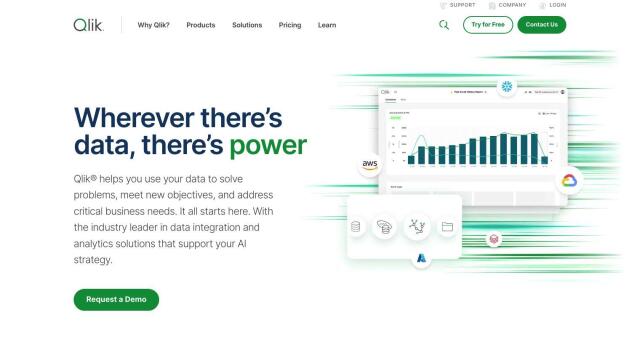
Qlik
For broad data integration, analytics and AI abilities, Qlik offers a rich data fabric and deeper insights through end-to-end data integration and data quality solutions. It offers broad integration and connectors to tap into hundreds of data sources and AI-powered features like AutoML for no-code predictive AI development. That makes Qlik a good fit for many industries and roles, with flexible pricing and a lot of resources to help with product adoption and data literacy.

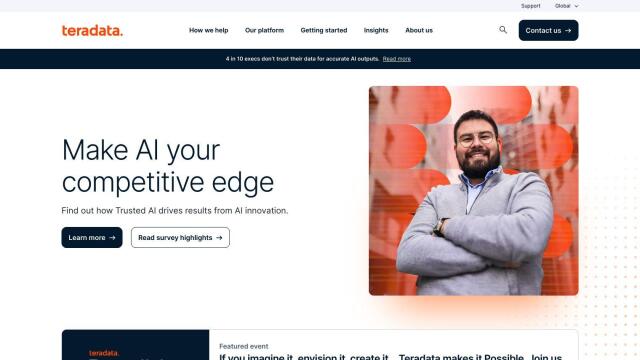
Teradata
Last, Teradata offers a unified and flexible data platform that unifies and harmonizes data across an organization, giving users a single view of the data and faster answers. With the VantageCloud platform, Teradata can handle multiple workloads including AI/ML, data lakes, data warehouses and transactional workloads. It can be deployed in public cloud, hybrid cloud and on-premises environments, making it a good choice for improving data-driven decision-making and resource optimization.

